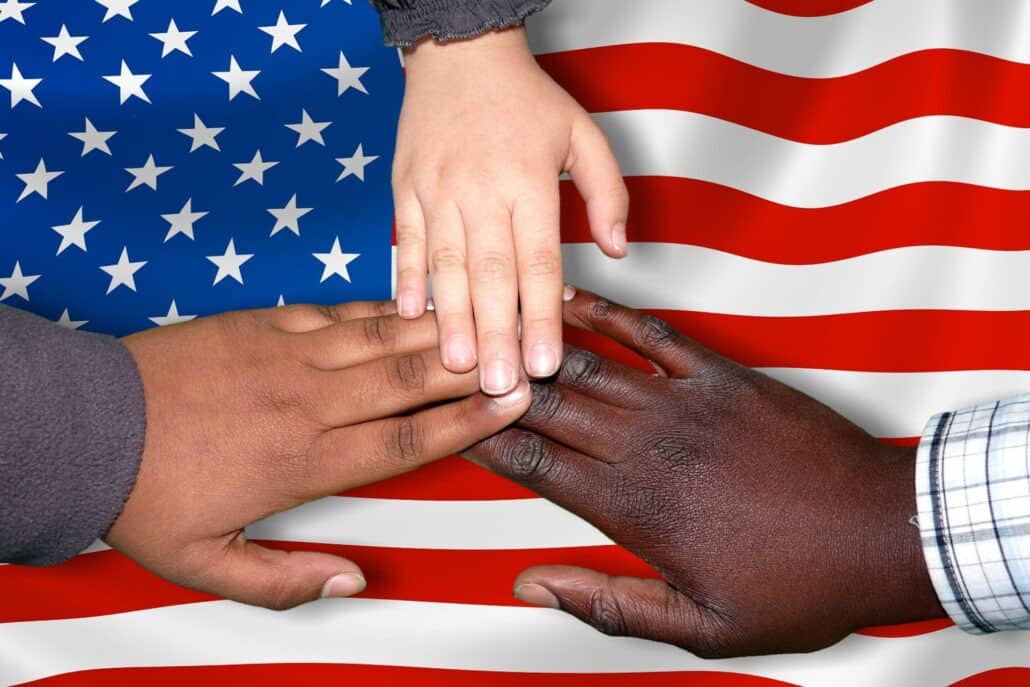US Immigration and Refugee Policies
January-March 2019
by by Al Usack
When I agreed that I would write about immigration and refugee policies, I hadn’t thought much about how I could possibly cover such a complex issue in a couple of pages. After all, I had done so on the topic of immigration reform in the March, 2013 Issue of the Month! Finally, I decided that all I could possibly do was to summarize the issues again and to suggest how we, as a congregation, may be able to contribute to humanitarian solutions.
U.S. Immigration and Refugee Policies: Congress has been amiss for many years about any real changes in our policies which results in a mish-mash of laws, many of which are controversial and require legal interpretation. For example, attempts to allow a path to citizenship of undocumented immigrants or to allow children of these immigrants who were not born here but have gone through our education system to become citizens (the so-called dreamers) have never been passed. Also, present laws are skewed toward acceptance of Caucasians and Christians and against other races and those who are not Christian. There are laws, however, that do give protections to immigrants and especially to refugees. However, because of the strong anti-immigrant and anti-refugee feelings of many Americans these laws are constantly being challenged.
The Present State of Affairs: Politicians – especially conservatives – have made immigration one of if not the major issue in the country. They have exaggerated harmful acts by immigrants, they have been less than truthful about causes of harmful activities involving aliens and they have called for measures that would have little impact on emigration to this country (the Great Wall). Also, they have promoted the idea that we are fast becoming a white minority nation and how bad this would be for our country. Some of the responses by their opposition also have been questionable. The result is a lot of conflicting dialogue but with little attempt to really fix the nation’s response to longstanding issues related to immigrants and refugees that make it even more difficult for those who have lived, worked and paid taxes here for years to become citizens. Immigrants or Refugees?: First of all, we need to quit simplifying the problem and quit exaggerating the negative effects. For example many people and even some of our officials, ignore the difference between a person who wants to come to this country to get a better job or a higher standard of living (immigrants) and a person who wants to move out of their native land because of the danger to themselves or their loved ones if they remain there (refugees). Many of the immigrants have work permits (green cards) and have no intention of becoming citizens and remain loyal to the country they have left. A lot of them work on farms or do factory work that is distasteful to most Americans. However, if they are relatively young and they have children, the children automatically become citizens and often become acculturated as Americans and wish to stay here. Or they may bring children with them when they come to America who after being here for many years also want to stay here. Gradually many of the immigrants become accustomed to America and stay here as undocumented (illegal) immigrants.
The number of immigrants entering the U.S. during the Obama administration fell greatly, especially those crossing the southern border and this has continued in the Trump administration. This decline has been due mostly to improvements in border defense including a large increase in border patrol personnel. Also a large number of undocumented immigrants have been deported over the last 10 years. Nevertheless, there are still about 11 million undocumented immigrants in the U.S and this number has remained stable for many years.
Most of these immigrants simply stay in the country when their green cards or visas expired. Our immigration laws make it almost impossible for most of these undocumented immigrants to become citizens because of stringent and conflicting immigration laws and the unwillingness of congress to revise such laws, The Cato Institute, a libertarian (and somewhat conservative) organization has published a “short list” of 26 ways that the legal immigration system is broken starting with “a far too restrictive system overall” and ending with “America has closed borders with a few holes”. It might be noted that #23 is: ”The President can ban any immigration that he doesn’t like”. Short summaries of each of the 26 ways is included in their report. A copy of their list is available in the folder on the Social Justice table and for more details on the difficulties check out “U.S. Citizenship Requirements” on the internet.
The number of refugees is much smaller. America has resettled a total of about 3 million refugees since 1980, but it lags far behind most countries in the number of refugees we accept per capita and the detention period often may last anywhere between 3 and 20 years due to the lack of sufficient expertise and the difficulty of collecting the required background material on the applicants. To get some perspective on this number, in 2016, alone, 17.2 million people were displaced from their homes due to conflict or persecution around the world. In the 1990’s most of the refugees in the U. S. came from Europe and Asia with hardly any from Latin America. Since then, a large portion were from Asia with about one-fourth from Latin America. One could argue that the larger influx from Latin America could be countered by efforts to reduce political and criminal tensions, especially in Central America and the northern countries of South America.
What can we do to help ensure a humanitarian response to this issue both as a congregation and as individuals. One thing we could do would be to go back to the Study/Action Issue that was passed at the UU General Assembly in Louisville in 2014. The study guide suggested a 6-week curriculum on immigration which included: causes of migration, history of immigration in the U.S., economics of (im)migration, security/enforcement of human rights, who benefits from broken system, and seeking solutions. We also can help immigrants learn English (MUUF member Chris MacCormack is always looking for help here in Bradenton) and MUUF member Bernita Franzel is very savvy on local Latina organizations and groups that could use help. We all can support the Immokalee Workers in their Fair Food efforts and other activities that they are involved in. Perhaps we could contact local schools to find out where and how help might be needed And, perhaps most important we could help by political advocacy – by voting, by helping minority voters to register, and by demonstrating for human rights for immigrants. And, we can contact our senators and representatives and urge them to support humanitarian immigrant and refugee reform.
I have put together a folder that includes a number of reports and comments on our immigration and refugee system. Please feel free to peruse these items but do return them to the folder when you have finished with them.




